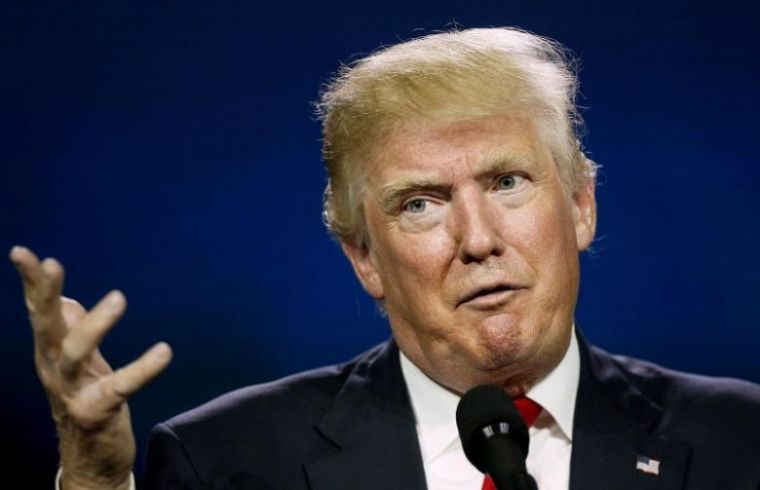Trump's new environmental policies - the end of the fight against climate change?

President Donald Trump signed orders this week to undo Obama-era climate change regulations, keeping a campaign promise to support the coal industry and calling into question U.S. support for an international deal to fight global warming.
Flanked by coal miners and coal company executives, Trump proclaimed his "Energy Independence" executive order at the headquarters of the Environmental Protection Agency.
But what difference will it really make? Christian Today spoke with Mohamed Adow, Christian Aid's Senior Climate Advisor, to find out more:
Is it true that the Obama administration was conducting a 'war on coal', and will Trump's executive order make any difference to the mining industry?
Obama was trying to reduce US emissions in order to address pollution, which has significant health and economic impacts. The Clean Power Plan he unveiled aimed to reduce nationwide power sector emissions by 32% from 2005 levels by 2030. As well as reducing carbon pollution, the EPA's own analysis indicates the plan would deliver health benefits, consumer savings and value on investment.
Coal is the energy source most harmful to human health, and Trump's decision will result in significant public health and environmental costs. Cutting coal is in the US national interest. Trump has committed to reviving the US coal industry, but the economic forces are too strong for Trump to overcome.
What will the effect be of rescinding the Clean Power Plan?
Trump's decision to roll back the Clean Power Plan will undermine US domestic climate actions, and its contribution to the Paris agreement [on climate change]. Researchers estimate the CPP could contribute about 15% of the emissions cuts needed to fulfill the US Paris pledge.
Can Trump pull the US out of the Paris agreement, and what would happen if he did?
Although Trump could begin the process of withdrawing the US from the Paris Agreement it would take a number of years and be extremely costly diplomatically. Nearly every country in the world would be opposed to this. Even if he did, Trump can't undo US climate action , which would continue, and his decision is unlikely to kill the Paris Agreement. The rest of the world recognises it's in their own interest to decarbonise their economies and slow the heating of the planet. They will not let him destroy our common home. We're already seeing China and EU stepping up their international leadership on this issue.
How far can the US go in derailing the global fight against climate change?
The level of public support suggests that 75% of Americans support regulating carbon pollution. Already a number of States and cities have opposed Trump's decision.
Under the Paris agreement the US committed to reduce its greenhouse gas emissions by 26-28% from 2005 levels. The US is already third of the way towards meeting the Paris commitment.
With US coal in long term structural decline and the US registering renewables growth, its unlikely Trump can undo US climate action by the stroke of a pen. But there is no denying his actions will make future climate action in the US more difficult and create huge uncertainty.
How serious is Trump's defunding and downgrading of the EPA?
It's pretty serious and unacceptable. It risks the capacity of the agency to deliver domestic climate and environmental protection.
What's driving climate change denial among Republicans?
For some it is the ideological threat that climate change poses to their view of free market capitalism. They fear that faced with an existential threat that the State will have to step in and curtail pollution to save the planet. Climate change has been described as the greatest market failure in history. However, climate denial is not the answer and only makes the need for more severe state action even greater down the road. The good news is the past three years have seen global economic growth increase while carbon emissions have remained flat. This suggests we don't need to choose one over the other. There are a number of Republicans now waking up the need to act on climate change including former Republican lawmaker Bob Inglis and his group RepublicEN.











